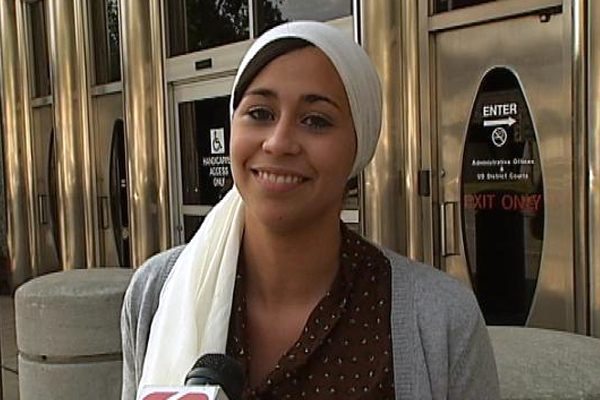
Abercrombie & Fitch is in hot water after denying a Muslim woman a job because of her religious headscarf. The two are meeting in the Supreme Court.
The Supreme Court is hearing the case of a young Muslim woman who was denied employment with Abercrombie & Fitch for not adhering to their dress policy. According to the policy that is listed by Abercrombie & Fitch, there are no “caps” allowed to be worn on the work floor, and no worker can wear black. Since the woman at the center of the case, Samantha Elauf, failed to obtain a job, it is being heard by the Supreme Court under Equal Opportunity laws as well as religious discrimination.
Abercrombie & Fitch’s Defense
The hiring practice at the center of the case is referred to as a “look policy”, where workers are expected to have a certain appearance. In the case of Abercrombie, Samantha Elauf was never told that her headscarf would be a disqualifying factor for her. However, the manager that interviewed her, Heather Cookie, apparently referred to the policy during the interview, but asked another manager about hiring Elauf.
Tell Abercrombie: Stop Discriminating Against Your Muslim Employees! http://t.co/TchxlbWQXF
— Katie McGeady (@Mymalineuse) March 3, 2015
The official stance of Abercrombie & Fitch is that their look policy is neutral towards lifestyles and religion. Officially, a spokesperson has said “Messages that deviate from a brand’s core identity weaken the brand and reduce its value” and that it is the right of the business to do what they can to promote their business. So far, the Supreme Court seems like it will side with Samantha Elauf, but their decision will not come until June.
The Court Case
The court case is being brought forth by the Equal Employment Opportunity Commission. They allege that the hiring practices are discriminatory and violate civil rights laws that date back to 1964. These laws make it illegal to refuse to hire someone based upon their religion unless it causes undue hardship to the business. Abercrombie & Fitch alleges that her clothing options would reduce the appearance of their brand and adversely affect their business.
Even though Elauf did win at the district level, prompting the Supreme Court case, a federal appeals court did rule in favor of Abercrombie & Fitch. The ruling noted that Elauf never made it clear that the headscarf was a religious article of clothing, making it impossible for them to use it as grounds for religious discrimination. Still, since the company does not deny that they refused to hire her based on her clothing choices.
The Supreme Court now faces a difficult choice that can have significant impacts on future cases. If they rule in favor of Abercrombie & Fitch, then it will set a precedent for inadvertent discrimination against religious groups. However, if the courts agree that Abercrombie & Fitch did discriminate against Elauf, then it could make businesses more susceptible to discrimination suits.
